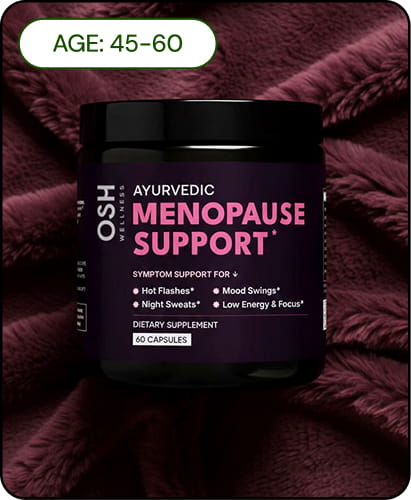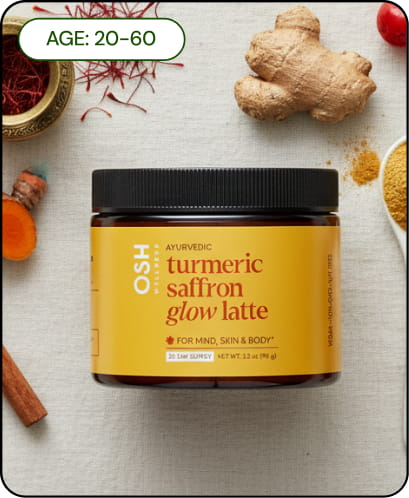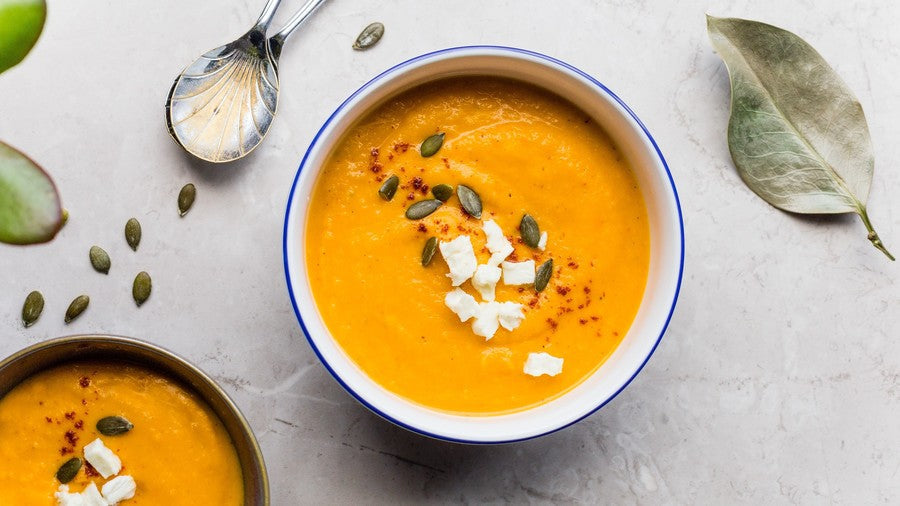Would you believe me if I told you that the human body needs roughly 80,000 calories in order to build a brand-new human? Sounds crazy, right? Crazy, but true! Not all calories are created equal, however. It’s much more important to make sure you are taking in the most nutrient-dense calories that you can, rather than counting how many calories you are taking in, especially when you are growing a tiny human!
There are some nutrients that absolutely need to be more abundant during the third trimester of your pregnancy in order to help support the rapid changes that your baby is experiencing and to help prepare for the big date! These include calcium, iron, magnesium, omega-3 fatty acids, and protein. And the beautiful thing about nature is that it provides us with everything we need to support our body. This means you can get all of the necessary nutrients needed to provide growth for you and your baby on a plant-based diet! Let's check each of these nutrients and how we can include them in our daily diet.
Calcium
Calcium is a known essential for your baby’s bone growth and helps protect you against osteoporosis later in life, however there are also other fun facts about calcium that you may not be familiar with.
Some studies have shown that calcium supplementation during pregnancy (greater than 1,000 mg/day) has been associated with a 35% lower risk of high blood pressure and 55% lower risk of preeclampsia.
You can get calcium naturally through greens like broccoli and kale, beans and lentils, hemp and rice milk, sweet potatoes, and butternut squash.
Iron

Iron is needed in the body for many different reasons even before pregnancy; it helps to make hemoglobin (the protein in red blood cells that carries oxygen to other cells), important component in myoglobin (the protein that helps to carry oxygen to your muscles), helps to build collagen in the body, and aids in maintaining a healthy immune system.
However, during pregnancy and especially during the third trimester, this mineral is even more essential. The amount of blood your body is producing to grow the placenta in the second and third trimester is substantial. Your body increases the amount of blood being produced by almost 50%! It’s recommended prior to pregnancy for the average woman to get 18 mg of iron per day, whereas pregnant and nursing mamas should get roughly 27 mg per day.
Some vegan/vegetarian options to getting iron in your diet include legumes, grains like quinoa, brown rice, and oats, nuts/seeds, and green leafy vegetables.
Magnesium
Have you noticed since getting further along in your pregnancy that you may have more frequent leg cramps or wake up in the middle of the night with Charlie Horses? This is most likely due to a magnesium deficiency.
Magnesium is such an important mineral for bone health and helps your body utilize protein and energy to regulate blood sugar and blood pressure levels, as well as assist with muscle and nerve function.
Eating foods high in magnesium like dark green leafy vegetables, legumes, nuts, and seeds are recommended during the third trimester.
Omega-3 fatty acids
You may notice that many doctors or midwives recommend expectant mothers to get prenatal vitamins that also have DHA and EPA either included in the prenatal vitamin or as a separate supplement to take every day, but there are natural sources you can find these fats as well.
These are omega-3 fatty acids and are very important for the health of your developing baby, especially towards the later stages of pregnancy. Healthy fats help to fuel your baby’s brain growth and the develop of their eyes, heart, and immune system. You can get them in sources like walnuts, flaxseeds, almonds, avocados, and olive oil.
Protein

Protein! Protein! Protein! This macronutrient is the building block to life. It forms the basis of the essential bodily tissues and carries most of the weight in terms of providing structure and function for the cells, organs, and tissues.
The World Health Organization suggests that around 6% of your daily calories during your pregnancy should come from protein rich sources. The average healthy woman should be getting roughly 46 grams of protein per day, but that should be raised to up to 70 grams per day during pregnancy.
Where can you find protein on a plant-based diet? Any organic, soy-based product is sure to have a great amount of protein provided in it. Tofu not your thing? Try adding in more lentils, chickpeas and other beans, hempseeds, nutritional yeast, spirulina, quinoa, oats, and brown rice to your diet! By eating a variety of plant-based whole foods like these will ensure that you are getting the right amount of protein daily for you and your baby!
Best vegan prenatal multivitamin
Not all prenatal vitamins are created equal. For mamas who like to get all their nutrients from plant-based sources, it is important to choose one that is well-thought-out and suits your needs. Osh Wellness Elite Prenatal is the most comprehensive prenatal with 26 vitamins, nutrients, and botanicals in their most bioavailable forms.
Conclusion
It’s of course always recommended to consult with your doctor before making any changes to your diet, especially if you are pregnant or nursing. It is also recommended to check if you are particularly deficient in any particular nutrient and need supplementation.
Plant-based diets can be so beneficial to the health and vitality of you and your growing baby, and provide you with an abundant amount of energy and fulfillment when growing this little life inside of you. The last trimester has been said to be the hardest on mamas, so be sure to fuel your body with the nutrients it needs and take the time to listen to what it may be trying to tell you it wants!








